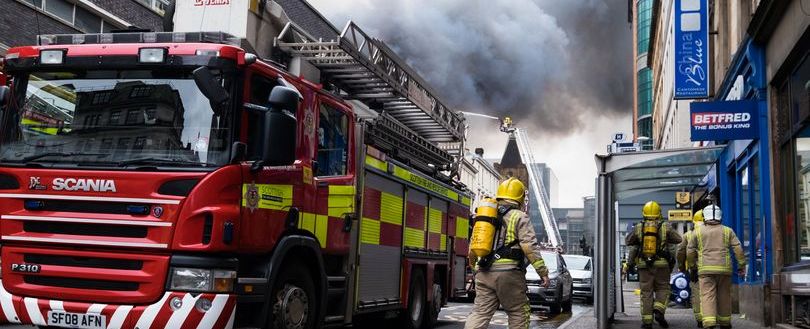
Firefighters far more likely to die from cancer, stroke and heart attack, study finds
Like it? Share it!
11 January 2023
Firefighters are far more likely to die from cancer, heart attacks and strokes than the general public, a study has found. The study by the University of Central Lancashire looking at mortality rates in Scottish firefighters for all cancers was 1.6 times higher than other people.
Riccardo la Torre, Fire Brigades Union national officer, said the findings "should horrify the fire services and the government." "This is about firefighters dying who did not need to," he said.
The study looked at mortality data from the National Records of Scotland, which found the number of firefighters who have died from prostate cancer was 3.8 times higher than the general population, 3.2 times higher for leukaemia, and 2.4 times higher for oesophageal cancer.
And in instances where cancer with an unknown origin has spread, the rate was 6.4 times higher than the general population.
The records the research team looked at were for firefighters between 30 and 74 years of age, of which there were 672. Their findings have now been published in the Journal of Occupational Medicine, and looked at mortality figures between 2000 and 2020.
Lead researcher Professor Anna Stec said: "It’s important that firefighters can continue to do their jobs as safely as possible, and the research shows that measures such as health monitoring and reducing exposure from contaminants at the workplace will play an important part in protecting firefighters. "The report said excess cancer mortality was likely linked to different kinds of exposures and fire toxins.
"Cancers of the oesophagus and digestive organs point, for example, to a potentially significant contribution from ingestion, which may occur when firefighters swallow mucus in which fire effluent has become trapped, or if they have eaten food with contaminated hands. "And mortality rates from leukaemia are linked to exposure to other chemicals such as benzene from contact with skin or inhalation."
Across the population there has been a downtrend in the number of cancer deaths, and report authors pointed to an increasing availability of lifesaving measures like early diagnosis and effective treatment. But, they found, there was the opposite trend among firefighters. They said firefighters appeared to have higher cancer rates at younger ages, with these being too young to be offered cancer screening on the NHS which were often targeted at older ages.
Scottish Fire and Rescue Service Assistant Chief Officer Andy Watt said: “The safety of our staff is paramount. We are aware of this important piece of research and will now review the findings.“
"The service has already undertaken work to minimise the risk of contaminants for our staff. This includes a substantial review of how fire appliances, personnel and PPE are decontaminated during and following an incident."
Our eNews provides regular insight into industry trends, news headlines, and product and service information. For news articles parallel to those mentioned above, sign up for our eNews. Click here to sign up: Subscribe to our enews (fia.uk.com)
Related training
Related news
-
Fire Enforcement Notices Served on Hinkley Point C Contractors
25 February 2026
-
Fire Chiefs Welcome Stronger Government Funding Settlement
13 February 2026
-
Guidance on IP Connectivity and Remote Services
19 January 2026
